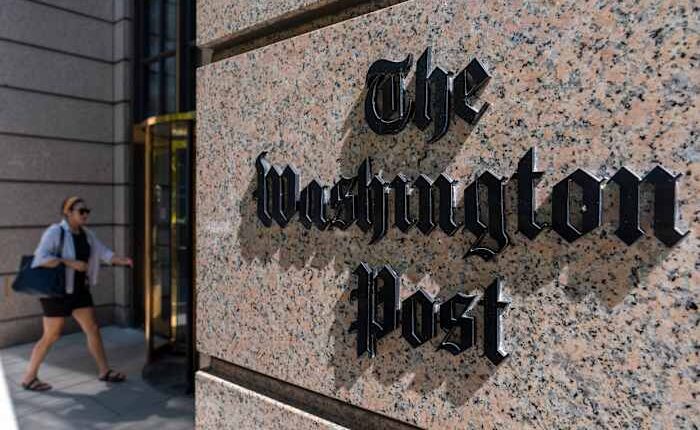
NEW YORK – The New York Times won four Pulitzer Prizes and the New Yorker three on Monday for journalism in 2024 that touched on topics like the fentanyl crisis, the U.S. military and last summer’s assassination attempt on President Donald Trump.
The Pulitzers’ prestigious public service medal went to ProPublica for the second straight year. Kavitha Surana, Lizzie Presser, Cassandra Jaramillo and Stacy Kranitz were honored for reporting on pregnant women who died after doctors delayed urgent care in states with strict abortion laws.
The Washington Post won for “urgent and illuminating” breaking news coverage of the Trump assassination attempt. The Pultizers honored Ann Telnaes, who quit the Post in January after the news outlet refused to run her editorial cartoon lampooning tech chiefs — including Post owner Jeff Bezos — cozying up to Trump.
The Pulitzers honored the best in journalism from 2024 in 15 categories, along with eight arts categories including books, music and theater. The public service winner receives a gold medal. All other winners receive $15,000.
The Times’ Azam Ahmed and Christina Goldbaum and contributing writer Matthieu Aikins won an explanatory reporting prize for examining U.S. policy failures in Afghanistan. The newspaper’s Doug Mills won in breaking news photography for his images of the assassination attempt. Declan Walsh and the Times’ staff won for an investigation into the Sudan conflict. Alissa Zhu, Nick Thieme and Jessica Gallagher won in local reporting, an award shared by the Times and The Baltimore Banner, for reporting on that city’s fentanyl crisis.
The New Yorker’s Mosab Abu Toha won for his commentaries on Gaza. The magazine also won for its “In the Dark” podcast about the killing of Iraqi civilians by the U.S. military and in feature photography for Moises Saman’s pictures of the Sednaya prison in Syria.
___
David Bauder covers the intersection of media and entertainment for The Associated Press.
Copyright 2025 The Associated Press. All rights reserved. This material may not be published, broadcast, rewritten or redistributed without permission.

















